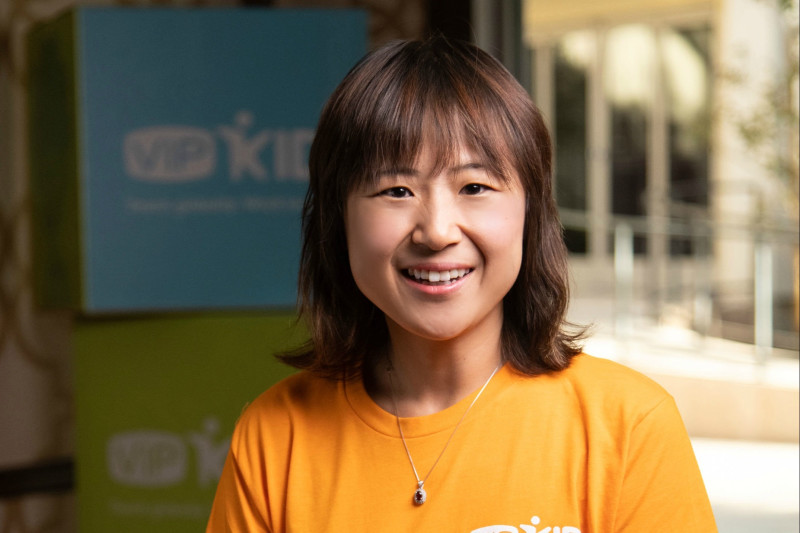- Iterate
- Meet The Team
- How China’s Edtech Market is Booming in the ‘Stay At Home’ Era
How China’s Edtech Market is Booming in the ‘Stay At Home’ Era
Table of contents
At the beginning of the COVID-19 pandemic in December 2019, online teaching was the last resort for teachers and students in China. But with the model becoming the “new normal” and classrooms going virtual, China’s EdTech market is soaring with high demands.

At the beginning of the COVID-19 pandemic in December 2019, online teaching was the last resort for teachers and students in China. But with the model becoming the “new normal” and classrooms going virtual, China’s EdTech market is soaring with high demands.
Fueled by the strict shelter-at-home policies under quarantine, China’s online education businesses emerged as one of the fastest-growing areas in an economy that was hit hard by the virus’ outbreak.
According to iResearch, the market size of China’s online education industry reached 257.3 billion yuan in 2020, up 35.5% from the previous year.
China’s Online Education Blasting Off
One of the most well-known EdTech companies in China is Yuanfudao. With a value of $15.5 billion and having raised a Series G round of $300 million, it is the highest valued private EdTech startup in the world. In 2020, the number of students on Yuanfudao reached 3.7 million and its revenue has a 200% year-over-year increase, according to Blue Elephant Capital.
The company offers a range of interactive and personalized education services, including an online class platform, a question bank, homework review and science workshop. Yuanfudao's K12 ecosystem has three key product lines: K12 online course, supporting learning tools, and Zebra AI.
The startup’s platform implements Microsoft's MSMarco machine reading comprehension technology, along with AI research, open-source and more than five independent research and development technologies.
“Online education is more than just teaching now, it’s a whole experience that students don’t get in a traditional classroom setting,” Bella Jiang, an English teacher at Yuanfudao, said. “I am able to communicate with each student on a much deeper level and develop a personal learning plan for them to succeed both at school and in real life.”
Lexi Liu, a sophomore majoring in English at Xi'an International Studies University, has been a student of Jiang’s since October 2019. With two English classes each week at Yuanfudao, she says she is learning much more during a 40-minute session than she ever could at her school’s English class, where she has to sit with over 30 other students.
“I am a shy student so I never raise my hand and ask questions in class at my school,” Liu said. “But here since it’s a one-on-one class, I get to really focus on my weakness and work through everything at my own pace.”
In addition to online classrooms and web learning platforms, China’s EdTech companies have also launched WeChat public accounts and mobile apps to facilitate students' study while boosting their social media profiles and marketing strategies.
In December 2019, China’s Ministry of Education announced the first batch of 152 education mobile applications approved for the record list, including six apps from Yuanfudao.
The department also said a total of 1,321 companies had submitted 2,279 applications for the review of education apps for 2019.
China’s EdTech Enters Global Stage
With over 400 million students, China is the world’s largest market for educational technology. According to HolonIQ, Chinese venture capital investment in EdTech far exceeds the spending in the U.S. China invested approximately $3.5 billion through the first half of 2019, compared with $1.7 billion invested in the U.S. in all of 2019, according to a report by education news organization EdSurge.
For several years, China has been a leading market for EdTech globally, with the implementation of AI-based personalized learning solutions. As of August 2021, eight of the world’s 22 EdTech unicorns (private companies valued at more than $1 billion) are from China, alongside U.S. companies such as Udemy, Duolingo and Coursera, according to global education technology source HolonIQ.
In 2020, China's education market received over $10 billion, a 150% increase from the previous year. The figure also takes up 63% of the global education venture capital funding, according to a report by Blue Elephant Capital.
From 2017 to 2019, as many as 37 Chinese education companies have gone public, according to Lanjing Education. They also showed strong performance in the stock market in 2020, with stock prices of the long-standing leaders TAL Education Group and New Oriental increased by 40% and 50%, while newcomers like Youdao (NYSE: DAO) soared by 90%, according to Blue Elephant Capital.
Small EdTech Companies Struggle Under the Fierce Competition
Although the COVID-19 pandemic has given China's EdTech industry an unprecedented push, many say such growth can hurt the smaller EdTech companies.
After the 2020 epidemic, many offline educational institutions have begun to carry out online teaching, with strong financing support.
In 2014, entrepreneur Cindy Mi officially founded VIPKid in Beijing, attracting more than 600,000 paying users. VIPKid is a premium-priced Chinese education startup that employs North American foreign teachers to teach Chinese children English.
VIPKid has raised mega-financing of more than $1.1 billion from leading venture capital firms, including Sinovation Ventures, Sequoia Capital China and Chinese technology giant Tencent.

In March 2020, Yuanfudao raised a massive $1 billion in financing from Tencent, Hillhouse Capital, IDG Capital and Boyu Capital, bringing the Beijing-based company’s total funding to $1.8 billion, at a valuation of $7.8 billion.
Zeyang He, Founder of an online adult English learning platform, Oscar English, says compared with the EdTech giants, his company has been struggling to keep up with the industry’s rapid growth.
He says in 2020, the overall cost of marketing and advertisement for potential customers at Oscar English has increased by 100% compared with 2019, but the return on investment is 20% to 30% lower than in the past.
“Because of this, since summer of 2020, many companies began to fight what we call a 'price war' in order to seize the market,” he said. “We now see overly low-cost marketing methods to attract more customers such as free classes, 19.9 Yuan (around $3) monthly deals, which put much more burden on small companies like us.”
He acknowledges that after the 2020 pandemic, the scale of financing opportunities for online education in China has increased significantly overall. However, he describes the investment situation in the EdTech industry as "ice and fire:" two extremes.
“The overheated capital capacity of large institutions allows them to just grab market share by burning money like crazy, making their data look good and attracting more investment opportunities,” he said.
“But on the other side, many small and medium-sized institutions have not been favored by investors.”
Create your own free org chart today!
Show off your great team with a public org chart. Build a culture of recognition, get more exposure, attract new customers, and highlight existing talent to attract more great talent. Click here to get started for free today.
In this article


The ORG helps
you hire great
candidates
Free to use – try today